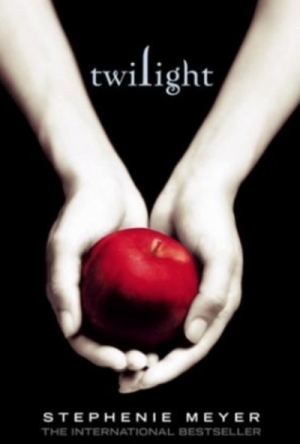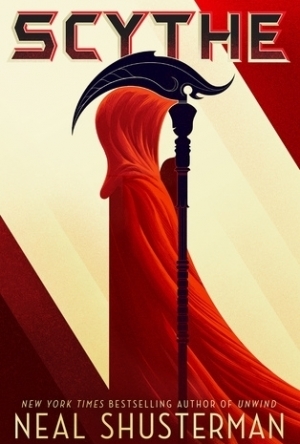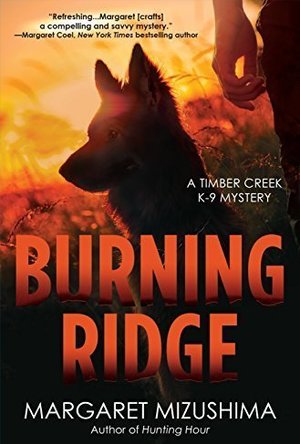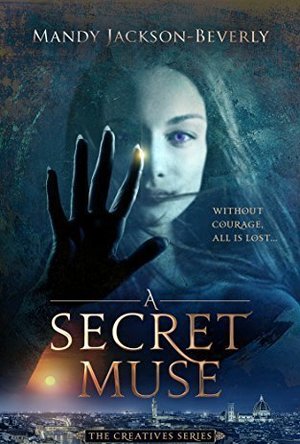
Birthdays and important dates
Lifestyle and Social Networking
App
All Very Important Dates of your friends and contacts are in one app. Each person has a Very...
Becs (244 KP) rated Twilight (Twilight, #1) in Books
Oct 2, 2019
Type: Book one (1) of the Twilight Saga
Audience/ Reading Level: 14+
Interests: Vampires, Supernatural, Fantasy, Romance, Action.
Point of View: Third Person
Promise: A love story between a pair of star-crossed lovers whose forbidden relationship ripens against the backdrop of small-town suspicion and a mysterious coven of vampires.
Insights: I did a buddy read for a reread through of Twilight with a good friend of mine and boy, am I glad I reread it! I’ve always loved The Twilight Saga. But rereading it as an adult, really made me appreciate it a bit more. Yes, there were some grammatical errors that took away from the surrounding text and there were some parts that I found a bit of a bore. All in all, I fell in love with the love story between Edward and Bella again and really grew to appreciate the Cullen’s as a family.
I was surprised that I had quite a few different favorite parts that weren’t my favorite parts before. And I’m tremendously surprised that some of the parts that I loved when I first read Twilight, were actually still my favorite parts. It goes to show that a novel can be appreciated many years later, even though your opinions and tastes change.
Favorite Quotes: “I’d never given much thought to how I would die – though I’d had reason enough in the last few months – but even if I had, I would not have imagined it like this.”
“You don’t care if I’m a monster? If I’m not human?”
“About three things I was absolutely positive. First, Edward was a vampire. Second, there was part of him and I didn’t know how potent that part might be – that thirsted for my blood. And third, I was unconditionally and irrevocably in love with him.”
“He looks at you like… like you’re something to eat.”
“No coffins, no piled skulls in the corners; I don’t even think we have cobwebs… what a disappointment this must be for you.”
“Could you believe that, despite everything I’ve put you through, I love you, too?”
What will you gain?: A love story with a bite!
Aesthetics: I’ve always loved the simple and minimalistic cover on Twilight. The story was also a very easy read to get into and I enjoyed the love story (and action!) that took place throughout the novel.
“You are only human after all.”
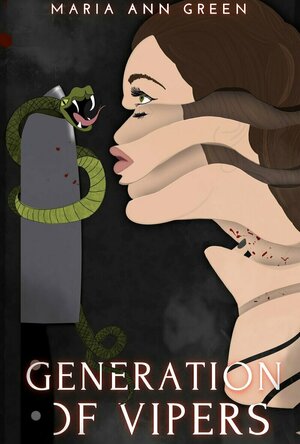
Generation of Vipers
Book
Rosabella Moore-Davis has just moved her husband halfway across the world, with a spur of the moment...
Adult Gothic Psychological Thriller

Undisclosed (Nights Series #7)
Book
I have a problem. His name is Lincoln “Asshole” Hudson. He’s the bastard who wants to run me...
Contemporary Romance
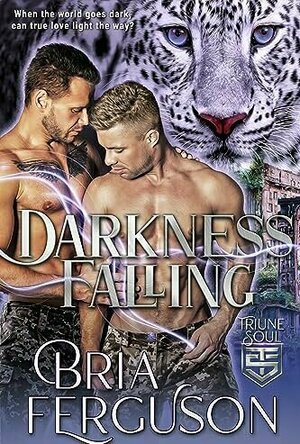
Darkness Falling (Light Up the Dark, #1)
Book
When the world goes dark, can true love light the way? Lex I seem like the luckiest witch in...
Paranormal Post-Apocalyptic MM Romance
A Bibliophagist (113 KP) rated Scythe (Arc of a Scythe #1) in Books
Jan 27, 2020
So in a New year new me moment, I forced myself to pick up two popular books that I was not interested in. Since they were both YA, they'd be quick reads and my expectations could below. I also forced my picks to not be hard SciFi, as I need to step out of my comfort zone. I picked this up, and developed more concern when I noticed how divided the reviews were, I noticed people were either firmly in the "this is my most favorite book ever" or in the "this is the most boring book ever I hated it" camps. I rarely rate books 1 or 5, so I wanted to see how I felt.
Honestly, I was very pleasantly surprised. This book is YA, and obviously has some YA aspects, but it doesn't follow the tropes unless stripped down to bullet points and is surprisingly well written. This well written aspect, with no intentions of making people mad, I think is why so many found it boring. If you primarily read YA, and are used to it's over the top writing, it's over the top dialogue and relationships and emotions, then yes, this book was probably horribly boring.
We do open with the standard tropes of uninteresting, normal girl and boy get thrown into something extraordinary. But that's where the stereotypes ended for me. The author quickly throws us into the world and the events of the story. We're in the future, who knows how far past the present, where society has overcome death. AI has evolved and "The Cloud" is now "The Thunderhead" a massive AI database that has solved most of the world's problems, eliminated poverty, war, government, created jobs for everyone, and even defeated death. We all have healing nanites that prevent illness and repair injury, and even in the case of death, we can be revived at a revival center and be greeted with some tasty ice cream. If we start feeling our age, we can just "turn a corner" resetting ourselves to a younger version of ourselves while retaining our memories.
Now, in a world without death, but babies are still being born, some form of population control is in order, the balance must be restored. So the world created the Scythedom. An organization outside the authority of "The Thunderhead" because death has and always should be a responsibility of the living. Those who become Scythes, must "Glean" (permanently kill) a quota of people every year to maintain population control. How they do so is up to them, but there are rules, a Scythe cannot show bias or malice in their choices, they cannot marry or have a family, they cannot kill another Scythe (but they can glean themselves) or someone with immunity, They may grant immunity to those they feel worthy, they must kill the families of those who resist, and they are above all other laws. The vagueness of these laws worked when the Scythedom was first created, but the world has become complicated, and some people have decided to find joy in what they do, even if it's killing.
Our story follows two teenagers who recently encountered the Honorable Scythe Faraday, Citra, and Rowan. Citra showed gumption and sass and moral balance, and Rowan held the hand of a boy that was not his friend as he was gleaned. Faraday is considered old school and chooses all that is gleaned by old school, age of mortality statistics. If a percentage of teenagers died in alcohol-related car accidents, he found a teenager with a penchant for drinking, who just got a car, and gleaned them. He believes the job is necessary, but should never be enjoyed, you need to be moral and compassionate and hurt every time. He is granted permission to take on an apprentice, and he takes on two, Rowan and Citra. Neither want it, nor should they, but should they become a Scythe, their families will receive immunity as long as they shall live, which in this day in age could be forever. So, reluctantly they both take it. There is a glamour to Scythedom as well, they'll wat for nothing, people will bend over backward to provide them with their desires in the hopes of immunity. If these two follow the teachings of Faraday, they won't be tempted by this, they won't abuse it, but not everyone feels the same way.
Citra and Rowan begin training (it gets a bit YAish here) studying history, poisons, combat, weapons. The goal to make them perfect, moral, compassionate, killing machines. Everything is going as well as it can, and luckily the book doesn't do what every other YA author would do and give us pages upon pages of the two falling in love, awkward encounters, stolen kisses. We have none of that thankfully. The dialogue is all purposeful and helps propel the plot, not flowery passages talking about teenage angst and feelings. But, it is a book, after all, so everything starts falling apart when a group of "New Age" Scythes, Scythes that believe they should enjoy their jobs, who take pleasure in mass killings (entire flights, festivals, food courts) stir things up at a Scythe Conclave meeting. They question if having two apprentices hurts whether or not the Conclave can judge the worthiness of either, or if them being friends will result in them always helping each other. How can they truly judge their ability if they always have each other's support? So they propose, since no law prevents it, that whichever apprentice should be chosen (remember Faraday was given permission to have ONE apprentice) will have to Glean the other. The Lead Scythe allows it, and honestly, this is one aspect of the book I struggled with, but I think was supposed to express the corruption of the Scythedom, at times when things aren't in writing they say "welp can't do it" and other times they say "welp nothing says we can't do it". Faraday attempts to free our two protagonists from their apprenticeships, but instead, they are separated, one going to a respected Old School Scythe, one going to the very modern group that started this whole problem, thrusting them into a world excess, deprivation, and honestly psychotic murdering. They now train, separately, knowing that one will die unless they can figure out a way to change things.
Even writing that sounds so Yaish, but it doesn't feel that way because it's so well written. The author doesn't give us Romeo and Juliet, no pining, no romance, just two kids trying to be that, good. Even when surrounded by something very bad. So, if you want to star crossed lovers, you won't like this book. If you like character development and struggle, you might like this book. We arguably see more of Rowan's development, Citra for me felt less focused on or given fewer opportunities for growth, and she had a bit of an attitude that made me no like her much, but given her circumstances, I UNDERSTOOD why she was the way she is, and I can't say I wouldn't be just as grumpy. If anything her response to the corruption and the situation felt very real, even if it sacrificed having a manic pixie daydream mary sue to project myself into. While appearances weren't really given for the two, setting them up to be good old fashioned Mary Sue and Gary Stu, they were very much their own people, with little room for the reader to pretend to be them. So another star in the breaking the YA mold category. We watch them struggle with where they are, and how to come to terms with their inevitable future, either being takers of life or having their life taken.
Overall this was refreshing, while it was an easy read and was a good "palette cleanser" and m boyfriend calls my YA marathons in between books that actually linger in my soul. It felt elevated, sure it was still very much YA, but it was more thought out than the standard, it focused on the story and not the romance, it focused on important things, and it never lost sight of its story. I started at 11am on a Sunday and Finished by noon on Monday, eager for the next. It was an unexpected, refreshing read, with a unique concept that has room for more. The sequel doesn't feel forced, and if I never got it, this story is finished, but the world and situation created to allow for more, without feeling like a forced trilogy. I wanted to know how this story was going to play out, and now that it has, I want to know how the next story in this set up plays out.
Haley Mathiot (9 KP) rated The Wolf Next Door (Westfield Wolves, #3) in Books
Apr 27, 2018
Genre: Paranormal werewolf romance, historical fiction
ISBN:9781402236969
Published: June 1st 2010 by Sourcebooks Casablanca
Rating:
Years ago, William Westfield and Pricia Hawthorne were in love—but Pricia's heart was broken and she refuses to let the scoundrel forget it. She knows now that he never committed the accused crime… but she can't bare to give her heart to him again. Even though she wants to.
Will has established his reputation as the best lover in six centuries. And he knows he did it to get Pricia out of his head. He still loves and adores her, snotty remarks and spirited personality and rule-breaking attitude and all. But when he is forced to visit the Hawthorne house to escort his sisters-in-law, he discovers that another man—another Lycan man—is pursuing her hand in marriage. Will doesn't think: The games are over. He decides that he will do anything and everything to keep the other werewolf away, and claim her forever.
This was, out of the three Westfield stories, my favorite. From the time I started reading, I couldn't put it down. It was fast-paced, exciting, and romantic. Although can I say that the covers—for this one and the others—could have been better? Still, I loved the story.
Will has always been my favorite Westfield, because of his happy, funny, warm, laid-back personality… and I loved seeing him desperately in love, trying his hardest to charm Pricia's socks off. Pricia is my favorite kind of heroine: the kind that can hold her own, especially with five brothers. Put Will and Pricia together, and you have an epic couple: They love each other, they hate each other. But they only hate each other because they love each other… a never-ending circle, a never-ending conversation, and a never-ending story… but a very satisfying ending to the book.
The plot was a lot more exciting than Dare's other werewolf stories—not to say the others aren't exciting. But this one surpassed the others. The other Lycan threatening Will's happiness added a good conflict to the story. Pricia's execution of torture on poor Will was both pitiful and hilarious. There was a war going on between the two wolves, and a war going on between the lovers, and it made for a stay-up-until-3-AM kind of book.
One of the reasons this one was probably my favorite, was because it wasn't sappy. I'm not saying the others are: but there was this running theme of the woman telling the man she was in love with him, and the man not admitting it until way too late, and causing problems because of it. There was none of that in The Wolf Next Door. Will straight up told Pricia that he loved her. He told her father he loved her. He told his brothers, and her brothers, that he loved her. And it made their romance much better and much more believable.
Magic, romance, heart-break, rivals, witches, and true love…all tied together with a sweet, naive, innocent little devil, and a very handsome werewolf. This one is begging to be re-read.
Content/recommendation: Little language, some sex. Ages 18+
Sassy Brit (97 KP) rated Burning Ridge in Books
Jun 5, 2019
Having done her homework, the author spoke with and shadowed those that train dogs. “I have a friend who retired from training tracking dogs. She allowed me to watch her train for tracking and evidence detection. I was inspired by her to write about a female canine handler. In fact, she had a dog named Robo, which I based the story dog Robo on. He could do so many things: Patrol, apprehend, track, and even pick up on gun powder to find hidden shells and casings.”
8171DUdQgiL._AC_UL115_Ridge
The plot has veterinarian Cole Walker and his two young daughters enjoying their trail ride in the Colorado mountains until they find a man’s charred boot with a decomposing foot in it. Called in to search for the rest of the body Matti and Robo find him. It is then Mattie realizes there is a personal link to her own troubled past.
This book explores her disturbed childhood, having been placed in foster homes since the age of six. Her father was convicted of abusing her mother who later abandoned her and her brother. This is why she and Cole are taking the relationship slow although it is obvious they love each other.
Because her husband is a vet, Mizushima knows something about the profession. “I always wanted to write a vet as a protagonist. Similar to my husband, Cole is a mixed practice vet, which means he treats large and small animals. He has to overcome some personal problems after his wife left him and his daughters. Both he and Mattie are hesitant to connect because of their baggage with abandonment issues. This is why I wrote, ‘And as much as she wanted to, she had trouble allowing him past the wall she built to protect her feelings.’ He is a work driven, a type-A personality, but soft-hearted. She is kind, athletic, spunky, a loner, independent, and vulnerable.”
What makes this novel special is the relationship between the partners. Robo is not written as some Superdog, but with realistic traits. Mattie and Robo are a dedicated team who have a strong bond professionally and personally. He is truly her best friend, and when she goes missing Robo uses his search and rescue skills to find her.
Having lived in Colorado all her life, Mizushima is able to create a realistic setting. She seems to draw from current events since there have been so many wildfires this season. In the novel, she uses it to enhance the action where the fire becomes an antagonist. “I grew in a small town on a ranch. I used the mountains because there is a sense of suspense and danger. This is why I wrote in the book quote, ‘Blazing orang lit the ridge above her, rapidly feeding on timber and eating its way downward. Balls of fire leapt from tree to tree, the dry needles wicking flames into branches and sap, setting off booming explosions in the treetops.’”
This is a gripping tale that has a message of hope. With Robo at her side Mattie is trying to overcome her childhood demons and learn to tear down the wall she has built, allowing Cole and his daughters into her life.

Rodigan: My Life in Reggae
Book
'THE BOOK THAT EVERY REGGAE FAN SHOULD READ' John Masouri, Echoes 'Rodigan can still claim a...
Yvonne (12 KP) rated A Secret Muse in Books
Jun 9, 2019
I liked Coco, she was happy to be herself, she was a free spirit, lost in her art and content with her own company. Even though her best friend and her brother were part of The Allegiance, she wanted nothing to do it, which showed how headstrong she was. Even after her accident, she was still stubborn and was literally forced into having additional protection.
I enjoyed how the supernatural overlapped with the real world, regular humans were not aware that supernatural beings lived and worked with them. Only a few people knew about the Allegiance and this kept everyone safe. Due to the society being large, they're quite a few characters in the story, but each one is relevant to the story and when we are introduced to them, parts of their backstory is revealed. As the story continues you soon come to realise how their lives interweave with each other and how they are connected in the future. There are various supernatural beings in this story, witches, vampires, to name but a few. All have an important role in the story.
This story was well researched and as some of the characters are vampires, the story spans over a long time period. Whilst I do not know anything about art, I enjoyed reading about the supernatural involvement used to create some of the most famous paintings. The scenic views of Italy and the places visited were described in fine detail and whether it is the 15th century or the modern day you feel like you are transported there. The pace would quicken with the action, making it more intense. The fight scenes were full on, but the characters would change from fighters to lovers in a few scenes, slowing the pace making it an enjoyable read.
This is a book for adults and whether you are looking for those tall dark and brooding men or just a good fantasy read to start a new series than this is the story for you
